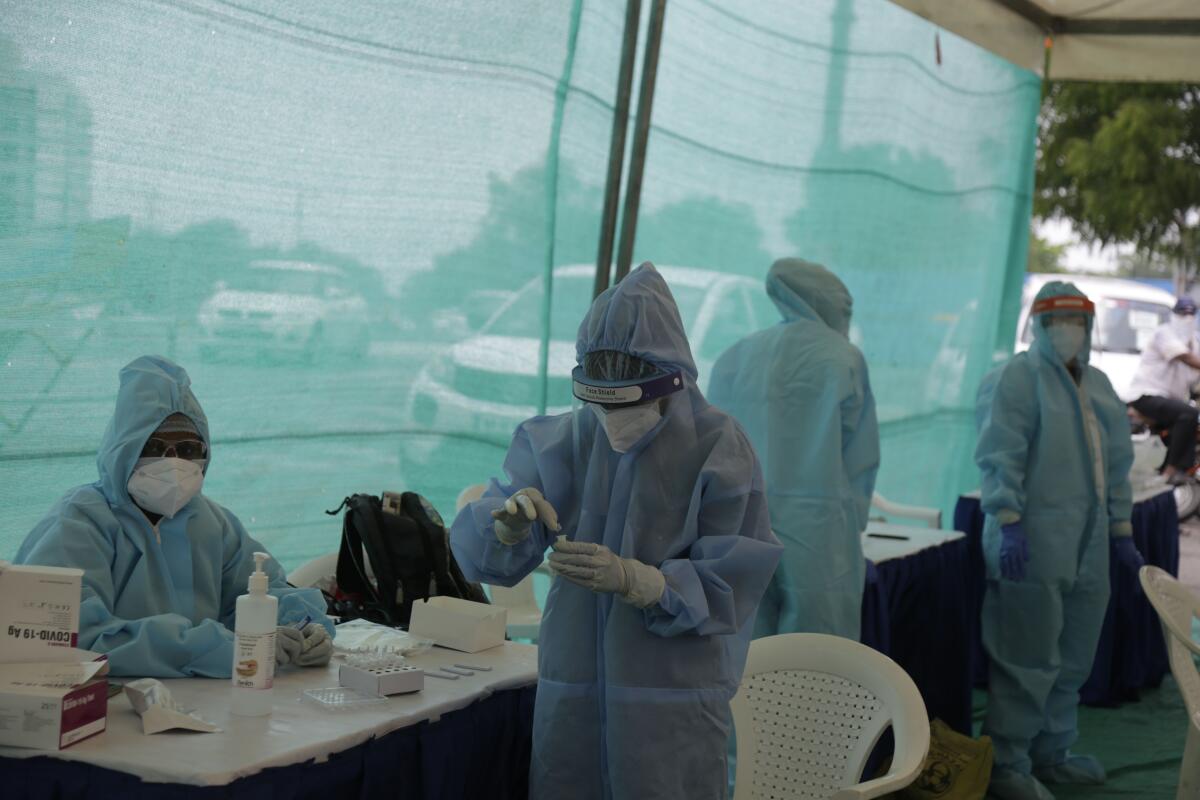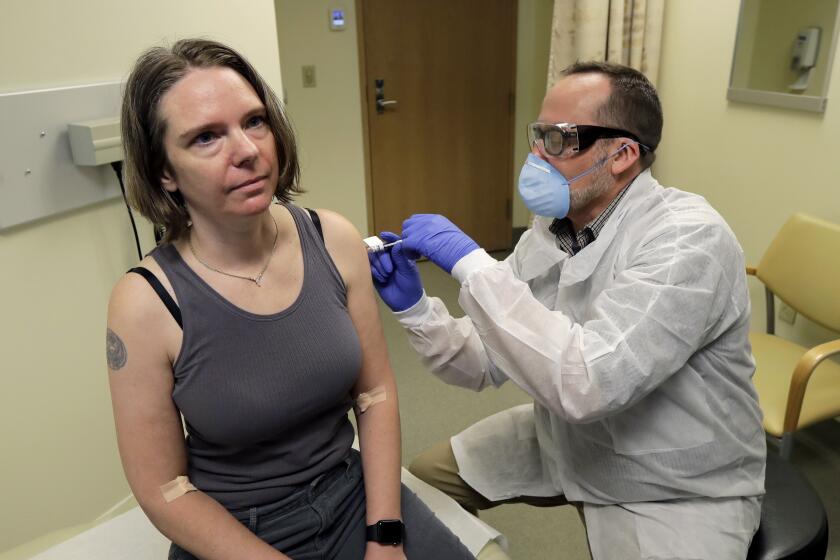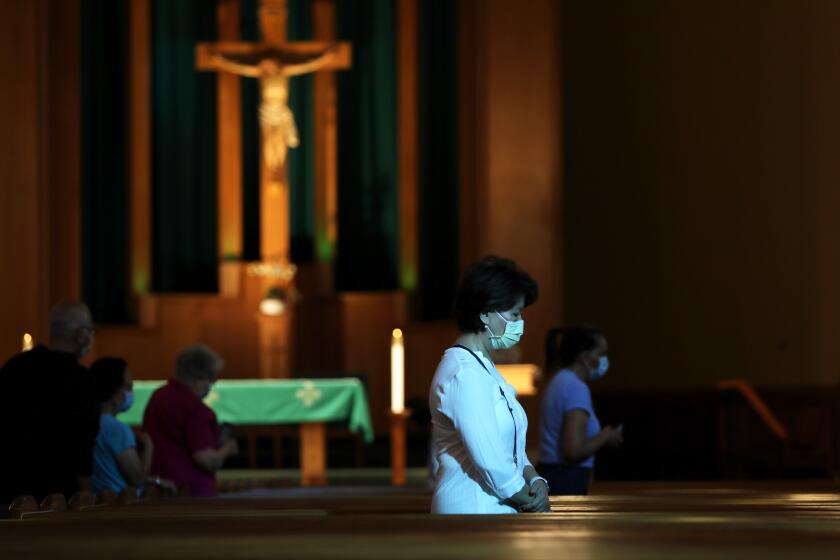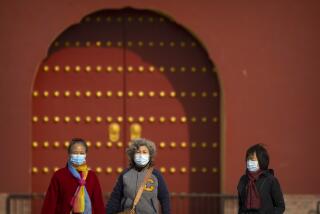India’s coronavirus cases hit 1 million as outbreak continues its global march

- Share via
India said Friday that its number of coronavirus cases had surpassed 1 million, behind only the United States and Brazil, as the number of cases globally approaches 14 million, fueled by outbreaks in places as far-flung as China’s western Xinjiang region.
India’s grim milestone, which includes more than 25,000 deaths, followed Brazil’s announcement that it has passed 2 million cases and 76,000 deaths — 1,000 fatalities a day, on average, since late May, on a gruesome plateau yet to fall.
India’s rising caseload drove home concerns over a surge that could overwhelm hospitals and tax its feeble healthcare system.
In the technology hub of Bangalore, officials ordered a weeklong lockdown that began Tuesday evening after cases surged exponentially.
Local governments are frantically trying to quash outbreaks and keep their economies running as the pandemic spreads in the vast countryside.
“The acceleration in cases remains the main challenge for India in the coming days,” said Dr. Ashish Jha, director of the Harvard Global Health Institute, adding that a vast majority of cases were still being missed.
Results from the Phase 1 clinical trial of Moderna’s coronavirus vaccine show it’s on the right track, though there were serious side effects at high doses.
Tokyo hit a daily high of 293 infections as Japan tries to keep the world’s third-largest economy running while curbing infections — a precarious balancing act of opening restaurants and theaters with limited seats and having store clerks work behind plastic shields.
“We have asked people and businesses to raise their alert levels,” Tokyo Gov. Yuriko Koike told reporters. She said the recent higher numbers partly reflect more aggressive testing.
China on Friday reported nine imported cases as it tightened controls in Xinjiang, where five local cases were confirmed in the previous 24 hours, along with eight cases in which people tested positive but were not showing symptoms.
Passengers departing from Urumqi, Xinjiang’s capital, were required to show a negative test for coronavirus and a mobile phone record with a clean bill of health. The main subway line linking the city to the airport was shut down and restrictions were imposed on use of public transport.
The Muslim-majority region is so far from Beijing that residents operate on their own unofficial time zone and had until now been little affected by outbreaks elsewhere that appear to have been brought under control.
Mask-wearing in public has become an increasingly pressing and politicized issue as the economy reopens and cases surge across the nation.
Meanwhile, Indonesia said large-scale restrictions in its capital would continue as new COVID-19 cases rise, with cinemas and other indoor entertainment spaces to remain closed.
“It will be very risky if we loosen the first phase of large-scale social restrictions to the second phase. So we decided to extend the social restrictions,” said Jakarta Gov. Anies Baswedan.
As of Thursday, 15,636 cases with 713 deaths had been recorded in Jakarta. Sweeping social restrictions were imposed April 10 but relaxed two months later. Indonesia overall has reported nearly 82,000 coronavirus cases and more than 3,800 deaths.
Israel reinstated virus precautions after a new surge in cases, with about 1,900 new cases reported Thursday. Restaurants will be limited to takeout and delivery and many businesses will be closed on weekends. Beaches are to close on weekends later this month.
Prime Minister Benjamin Netanyahu said “interim steps” were needed to avoid another general lockdown.
More than 13.8 million infections have been confirmed worldwide, and more than 590,000 people have died, according to a tally by Johns Hopkins University. The actual numbers are likely higher for various reasons, including limited testing.
More to Read
Sign up for Essential California
The most important California stories and recommendations in your inbox every morning.
You may occasionally receive promotional content from the Los Angeles Times.












